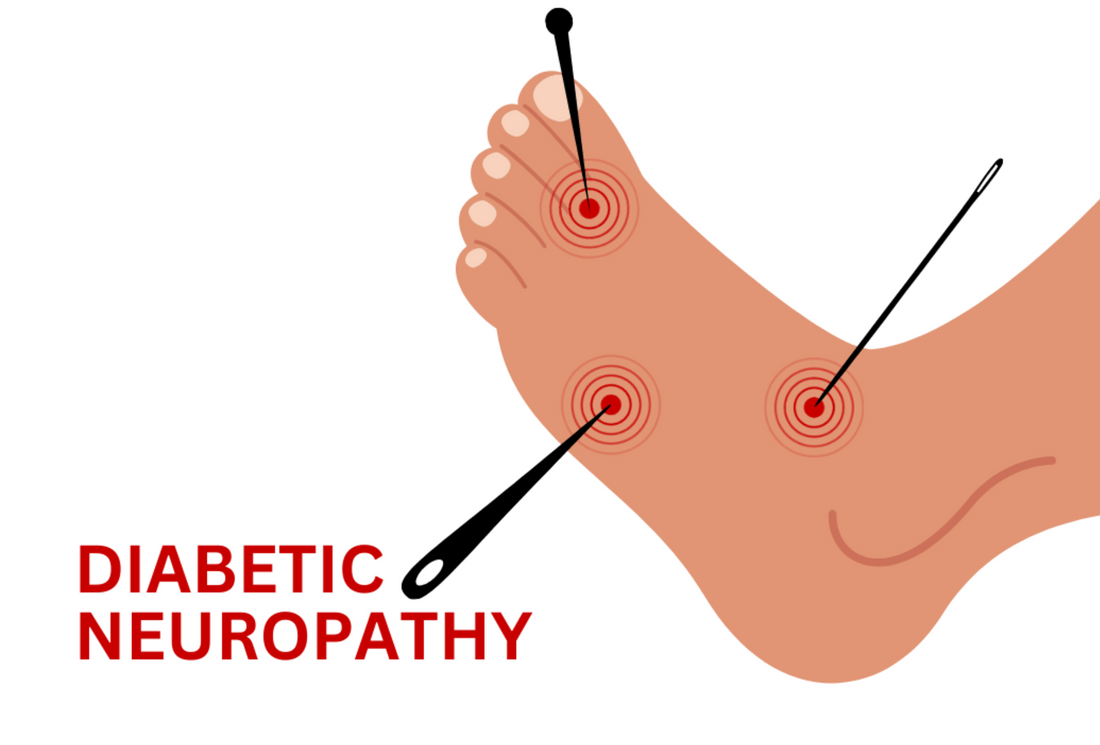Understanding the Connection Between Diabetes and Neuropathy
Developing Type 2 diabetes not only poses a risk to your overall health but also increases the likelihood of complications, especially when blood sugar levels remain uncontrolled. One significant and potentially serious complication associated with Type 2 diabetes is neuropathy.
Neuropathy, characterized by nerve damage, often results from elevated blood sugar levels. While the condition can be perilous, proactive care can help prevent its onset and mitigate severe complications.
Understanding Neuropathy: Neuropathy manifests as nerve injury due to persistently high blood sugar levels. Commonly, it induces pain and numbness in the affected area, ranging from mild discomfort to debilitating pain. In diabetes, neuropathy primarily affects four major areas:
- Peripheral Neuropathy: Causes tingling, numbness, pain, sensitivity, and muscle weakness in the feet and legs.
- Autonomic Neuropathy: Typically impacts the digestive system.
- Proximal Neuropathy: Affects the hips, buttocks, and thighs.
- Mononeuropathy: Occurs in the face or torso.

It's possible to experience one or multiple forms of neuropathy simultaneously. Left untreated, neuropathy can lead to severe complications, such as foot ulcers, gangrene, chronic digestive issues, urinary tract infections, and, in extreme cases, amputation.
Diabetes and Neuropathy Connection:
While neuropathy can occur independently of diabetes, the majority of cases are diabetes-related. Elevated blood sugar levels, a hallmark of diabetes, contribute to nerve damage by impairing message transmission and weakening blood vessel walls, hindering nutrition and oxygen supply to the nerves.
Prevention and Management:
The good news is that diabetic neuropathy is preventable and manageable. Individuals with diabetes can significantly reduce their risk by regularly monitoring blood sugar levels and maintaining a healthy range. Careful foot care is crucial in preventing peripheral neuropathy, including keeping feet clean and dry, trimming toenails to avoid sharp edges, and daily checks for cuts, sores, and swelling.
For those already experiencing neuropathy, managing blood sugar levels within the target range, maintaining a healthy weight, and adopting a healthy lifestyle can help prevent further progression of the condition.








